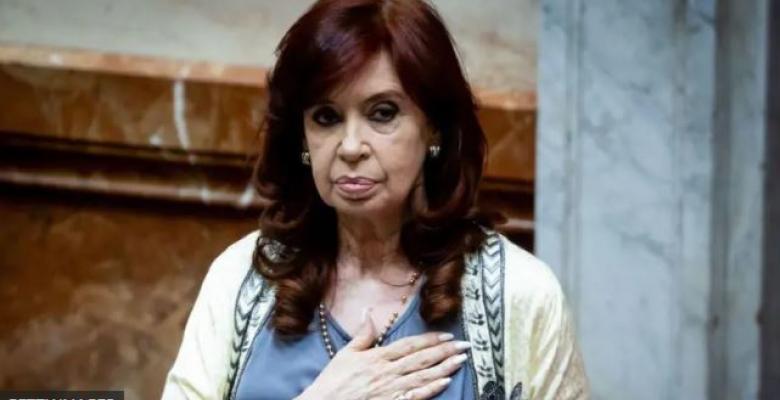Refounding Peronism?
especiales

I have never truly believed that Peronism is the best resource for the people, because within it, elements who have sufficient resources to face life's contingencies coexist with those who have nothing, and all they can do is trust those at the top who desire the common good for those at the bottom.
Life has shown that this has not been possible in many ways, although it emerged honestly amidst and in response to the preeminence of the Soviet camp during the Stalinist era and capitalist totalitarianism.
While Peronism's founding and enduring ideals are to achieve the happiness of the people and the greatness of the nation through the exercise of social justice, economic freedom, and political sovereignty, with memory, truth, and justice, its identity has changed over time.
Without delving deeper into detail, one was the Peronist identity under the Perón administration and the influence of Evita, built on nationalist, popular, and anti-imperialist ideals, with a strong humanist and Christian orientation. Very different were the identities during the 18 years of the Peronist Resistance, the short-lived governments of Cámpora and Perón, and during the new struggles that challenged the civil-military dictatorship. Despite some differences and defections, the Peronist identity did not suffer major blows during this period.
The major changes came with the return to representative democracy, since Peronism had not had the experience of acting as an opposition to a government of that nature, apparently the result of free elections without proscriptions.
Despite its active defense of that democracy during the coup attempts against Raúl Alfonsín, Peronism was unable or incapable of adapting its identity to the new circumstances and ended up completely distorting it during the neoliberal government of Carlos Menem and the radical continuity with De la Rúa.
KIRCHNERISM
It took the social crisis of 2001, the transition from Duhalde to power, and the governments of Néstor and Cristina for Peronism to remake its identity in terms compatible with its historical future.
The identity that emerged with Kirchnerism restored the historic objectives of Peronism and added a fourth to its three banners: memory, truth, and justice. Despite these improvements, it was perhaps a step backward to argue that rights arise whenever there are unmet needs and that these rights do not require struggle, or at least mobilization, from the beneficiaries, nor do they entail obligations or compensation on their part.
The neoliberal relapse the Macri administration represented, as well as the insignificance of Alberto Fernández's administration and the massive defeat at the hands of Milei, resulted largely from these identity-based setbacks and their consequences in terms of representation, organization, and lack of proposals.
CRISTINA
Progressive media outlets such as Página 12 and Telesur highlighted how Cristina Fernández de Kirchner had once again placed herself at the center of the national political stage, calling for a rethinking of Peronism in the face of the poverty and exclusion promoted by Milei.
She advocated for "rethinking the economic model" through Peronism, without clinging to historical clichés. Regarding domestic politics, she called for "stopping being electoral activists and returning to being political activists." She also called for questioning the "pettiness and egos" that, she said, led to "useless fragmentation."
Along those same lines, and within the framework of the Popular Culture Meeting held at the Saldías Cultural and Sports Center, she reappeared publicly with a fiery speech that combined strong criticism of Javier Milei's government, a call for the reconstruction of Peronism, and a reflection on the current economic situation.
One of the central themes of her presentation was foreign debt. "If we continue on this path, a tenth default is not a distant fantasy," warned the former president. In this context, she harshly criticized the Incentive Regime for Large Investment (RIGI) and suggested that the provision of resources could go beyond the economic: "Will they give them a piece of Ushuaia to build some kind of base?" referring to foreign powers.
Cristina also analyzed the current state of the Argentine government and its lack of connection with society. "Continuing to talk about the current state means being out of sorts with what's going on today. We have to see how we can achieve an efficient state," she stated.
Addressing the economic situation, the former president pointed out that the current model "only serves 30% of the population," while the remaining 70% are excluded. She gave as an example the change in the election results in working-class neighborhoods, where Milei had won in the first round and now lost, which she attributed to the immediate effects of the crisis: "The odd jobs are over; you can't hire a nanny or a gardener."
She also criticized the official narrative on the economic order: "They want us to believe they've found the formula for Coca-Cola," she quipped, referring to the austerity and dollarization policies. She described the chainsaw as a "lying but effective figure" and branded the May Pact as a "smoke bomb."
Finally, she harshly criticized the libertarian administration:
"They didn't build anything, not a school, a building, or a monument. Who will remember these guys in 20 years?"
Translated by Amilkal Labañino / Cubasi Translation Staff













Add new comment